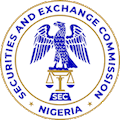IFC Supports SEC in Strengthening Market Integrity, Encourages Foreign Investments
09/12/2016
Lagos, Nigeria. November 16, 2016 – IFC, a member of World Bank Group, and the Securities and Exchange Commission of Nigeria, are helping to strengthen market integrity with a standardized Corporate Governance scorecard for public companies. The scorecard will identify strong performers through enhanced disclosure, strengthen investor confidence and encourage foreign investments in the country.
In 2014 IFC and SEC partnered to develop the Nigerian Corporate Governance Scorecard which was launched in November 2015. Following the launch, both institutions have jointly trained various stakeholders to prepare for implementation. These stakeholders include Chief Finance Officers, Company Secretaries, Audit Committee and Board Chairpersons. The training sessions generated awareness for the new disclosure requirements of SEC. These disclosures will be used annually to assess corporate governance practices of listed companies in the country.
Corporate governance scorecards are quantitative tools used to measure the level of observance of a code or standard of corporate governance. The scorecard was developed using indicators from the SEC code of corporate governance and will assess individual, sectorial and market-wide level of compliance with standards of best practices.
Mounir Gwarzo, Director General, Securities and Exchange Commission, said, “A key focus of the SEC is to provide regulatory oversight to ensure public companies comply with best practices in corporate governance and boost their performance. Having built considerable market awareness for the scorecard with IFC’s support, we hope that as companies comply, they will improve their performance and contribute to growth in the nation’s economy.”
Eme Essien Lore, IFC Country Manager for Nigeria, said, “IFC works with firms to attract and retain investment by promoting the adoption of good corporate governance practices and standards. We have partnered with SEC over the last two years, developing the CG Scorecard and sensitizing stakeholders. We hope that as implementation begins in January 2017, the trained officials would translate progress made into ongoing processes that boost performance, attract investments and help the economy grow.”
Corporate governance refers to the structures and processes by which companies are directed and controlled. Companies become more accountable and transparent to investors, which encourages new investments, boosts economic growth, and provides employment opportunities.
IFC’s Africa Corporate Governance program is funded by the State Secretariat for Economic Affairs (SECO), Switzerland . IFC is the implementing partner for the program.
About IFC
IFC, a member of the World Bank Group, is the largest global development institution focused on the private sector in emerging markets. Working with 2,000 businesses worldwide, IFC uses its six decades of experience to create opportunity where it is needed most. In financial year 2016, long-term investments in developing countries rose to nearly US$19 billion, leveraging its capital, expertise and influence to help the private sector end extreme poverty and boost shared prosperity. For more information, visit www.ifc.org
Stay Connected
ABOUT SECO
SECO is Switzerland’s competence center for all core issues relating to economic policy. SECO’s economic development cooperation strives to achieve sustainable growth. Such growth is sustainable if it creates jobs, helps to increase productivity, to reduce poverty, inequalities and global risks. For more information, visit www.seco-cooperation.ch.
About SEC
The Securities and Exchange Commission (SEC), Nigeria is the apex regulatory institution of the Nigerian capital market supervised by the Federal Ministry of Finance. The Commission has evolved over time having started with the establishment of the Capital Issues Committee in 1962 by the government as an essential arm of the Central Bank of Nigeria. The Investments & Securities Act (ISA) No. 45 of 1999 was repealed by the ISA No. 25 of 2007 which gives the Commission the powers to achieve its objectives which include regulating the capital market with a view to protecting investors and developing the capital market in order to enhance its allocative efficiency, and pave the way for a private sector led economy.
The Act also empowers the Commission with a board of nine (9) members including the Chairman, the Director General, three Executive Commissioners, two Non-Executive Commissioners, representatives of the Federal Ministry of Finance and Central Bank of Nigeria. For more information, please visit www.sec.gov.ng
